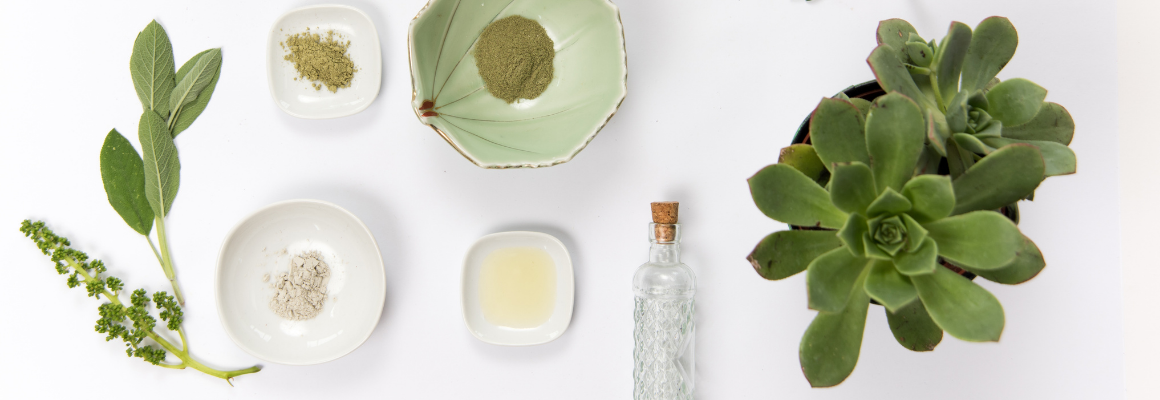Dealing with itchy skin? Whether you suffer from eczema, psoriasis, dry skin or another skin condition, suffering from itching is never pleasant. There are a few reasons why you may experience itchy skin. In fact, itchiness is a common symptom of many skin conditions such as eczema, psoriasis, or hives. It can also result from an allergic reaction to your pet, like a dog or cat. You may also notice that your itch gets worse in the winter. This is because cold weather has a tendency to further dry out the skin which results in itchiness. Another possible cause of itching could be contact with irritating fabrics that your skin reacts negatively to. Common fabric irritants for itching include wool, polyester, and nylon. If you want to learn more about the cause of your itchy skin, be sure to speak to a trusted source such as your doctor or dermatologist.
We are strong advocates of using natural remedies and skincare products to help and relieve itchiness. We love skincare products that are made with gentle and soothing ingredients like coconut oil, aloe vera, and colloidal oatmeal. In fact, we encourage you to avoid toxic and harsh ingredients including parabens, phthalates, petrolatum, p-phenylenediamine (PPD) and even artificial fragrances. Exposing your itchy skin to these ingredients can cause allergic reactions, interfere with hormone functions, and even lead to cancer. They may even exacerbate your eczema symptoms! Our general rule of thumb is that if you can’t pronounce the name of the ingredient, it probably isn’t healthy for you.
Be sure to do your research, shop around, and always read the labels of your skin care products - especially when trying out a new product - to make sure the ingredients are safe for both the planet and your body. For additional resources and tips on itchy skin and dermatology, other reputable sources like the Mayo Clinic, the National Eczema Association (NEA), or the American Association of Dermatology (AAD) can be a great start.
Natural Remedies for Itchy Skin
There’s no doubt that dealing with itching is annoying and uncomfortable. Not only can the urge to scratch be disruptive during the day when you’re trying to concentrate at work, school or at home, but it can also be unbearable during the night when you’re trying to get a good sleep. Research suggests that itching tends to get worse at night, so if you’ve spent more time tossing and turning and trying not to scratch your skin raw than actually sleeping, you’re not alone.
Sadly, many people try to combat the itch by scratching and as a result, find themselves trapped in the vicious itch-scratch cycle. Relentless scratching can also cause the skin to crack or bleed which can pave the way for infection as bacteria can more easily enter.
If you’re tired of multiple trips to visit your doctor and high medical bills which your insurance won’t cover, here are some of our favorite at-home remedies to manage and beat the irritating itch.
Draw up a Bath with Colloidal Oatmeal or Baking Soda
Colloidal oatmeal is a finely ground oatmeal that can easily dissolve in water. Because it is rich in beta-glucans, it can help reduce skin inflammation. Thanks to its antioxidant and anti-inflammatory properties, it also helps alleviate irritation and soothe itchy skin. Many people who suffer from eczema use colloidal oatmeal to lessen scaling, improve roughness, and restore dryness.
You can create a homemade colloidal oatmeal treatment by grinding 2-3 cups of the oatmeal in a food processor or coffee grinder. Pour the oatmeal powder inside the water as the tub is filling. After you finish, be sure to pat dry your body with a towel as harsh rubbing can actually aggravate symptoms.
Can a baking soda bath help relieve eczema symptoms and itchy skin? Yes! A baking soda bath is the natural and healthier alternative to the bleach bath. There are so many wonderful benefits of baking soda. It can help balance the skin’s pH levels, reduce skin inflammation, and decrease harmful bacteria. Plus, you probably already have baking soda in your house, making it an easily done at-home remedy. If you run out, it’s easy to find at the nearest shop. Be sure to draw up a lukewarm bath as opposed to hot as hot water has a tendency to further dry out the skin. We recommend adding about 1/2 to 1 cup of baking soda to the water or 1/4 cup for smaller children. When everything is dissolved in the water, relax and soak in the tub for around 40 minutes. If you don’t feel like soaking in a full bath, you can also mix the baking soda with water to form a paste. You can then apply this paste to any itchy areas you see fit - even on the scalp and hair!
Enjoy the Cooling Effects of Aloe Vera
This tropical plant is far more than a pretty household decoration! In fact, it has a long history of being used for medicinal purposes. At some point in your life, you’ve probably used aloe to treat a nasty sunburn but have you ever tried it to reduce itching and inflammation from eczema? The gel from its leaves contains over 75 nutrients that help hydrate the skin, soothe itching, calm redness, and reduce infection. Its natural wound-healing abilities also promote faster healing by soothing broken or cracked skin. You can easily extract this powerful gel by cutting a leaf and squeezing it out. Alternatively, there are plenty of skincare products that contain this ingredient which you can find in your local shop. While there is sadly no one-size fits all solution to managing eczema, aloe vera can definitely help provide gentle itch relief, reduce discomfort, and hydrate dry skin.
Apply Coconut Oil
We’re nuts for coconut oil! Coconut oil is praised for the many health benefits it provides. Whether it’s taken internally or used topically on the skin, many people are turning towards this delicious fruit to alleviate uncomfortable symptoms such as dryness and itchiness. Thanks to its supreme hydrating qualities and natural ability to penetrate the skin, it can help combat the drying effects of eczema and the accompanying itch. Because it is rich in lauric acid, it also helps reduce the risk of infection if scratching damages the skin barrier. Finally, thanks to its anti-inflammatory properties, it’s a gentle solution for treating an inflammatory condition like eczema. We recommend trying a coconut oil bath or applying it directly to slightly damp areas of skin. If you’re unsure whether coconut oil is for you, don’t be afraid ask your medical advisor.
Combine a Natural Moisturizer with Wet Wrap Therapy
Not all moisturizers were created equal! As mentioned, many skincare products contain harmful ingredients that don’t contribute to good skin health. That’s why we love this 100% natural Organic Manuka Skin Soothing Cream. It’s made with just 6 ingredients including Manuka honey which is renowned for its powerful antibacterial properties. In fact, compared to tea tree oil, Manuka oil is 20 to 30 times more effective against bacteria and 5 to 10 times more effective against fungus. The fact that it’s more potent than tea tree oil really speaks to its power! With absolutely zero added preservatives or fragrances, this creamy oil-based balm is free from burning or stinging. Gentle and soothing, it’s the perfect solution for adults and babies alike. It truly moisturizes even the driest of skin. Don’t believe us? It’s doctor approved and EWG Skin Deep 1 Rated! Even the Mayo Clinic recommends moisturizing your skin at least twice a day.
Wet wrap therapy is a simple at-home remedy. It involves applying a natural emollient to the skin - like the Organic Manuka Skin Soothing Cream mentioned above - wrapping it with a wet piece of clothing, and then covering up with a dry layer. This allows the moisture to better permeate the skin. We recommend leaving the wraps on for a minimum of two hours or overnight. When it’s time to remove the wraps, be sure to reapply a natural moisturizer.
While you can try wet wrap therapy with any of our Remedywear™ clothing, we recommend trying these hypoallergenic bandages. Featuring latex-free elastane, they were made with sensitive skin in mind and are perfect for little ones, adults, and everyone in between. Constructed from super soft TENCEL embedded with zinc oxide, they allow emollients to safely permeate the skin and provide long-lasting relief all day or night. They are a great way to target problem areas that are itching such bends of elbows and the backs of knees.
For full body coverage, check out our Remedywear™ shirts for adults and kids, as well as these form-fitting pants also available for adults and kids.
Start an Eczema Elimination Diet
Diet is obviously connected to overall health and well-being, but it can also be a trigger for eczema symptoms. If you’re experiencing a sudden bout of itching without knowing why, it could be related to the food you’re eating. Some common food culprits that are known to exacerbate symptoms include shellfish, gluten, citrus fruits (such as lemons, grapefruit, and limes), dairy, nuts, and different spices, such as vanilla, cloves, and cinnamon. Bear in mind that everybody is unique. That’s why it’s so important to learn what works for your body. What triggers an inflammatory response in one person may not do the same for you.
To learn which foods are triggering your itching, we suggest trying an elimination diet. This involves completely cutting out the consumption of certain foods for a certain period of time (usually around one month) and then slowly working these foods back into your diet to see which one caused a reaction. Carefully monitoring the results can help you determine if you have any food triggers.
Before undergoing an elimination diet, be sure to consult with your doctor or medical advisor or check out the NEA website to ensure you are still getting all essential nutrients, especially when children are involved.










